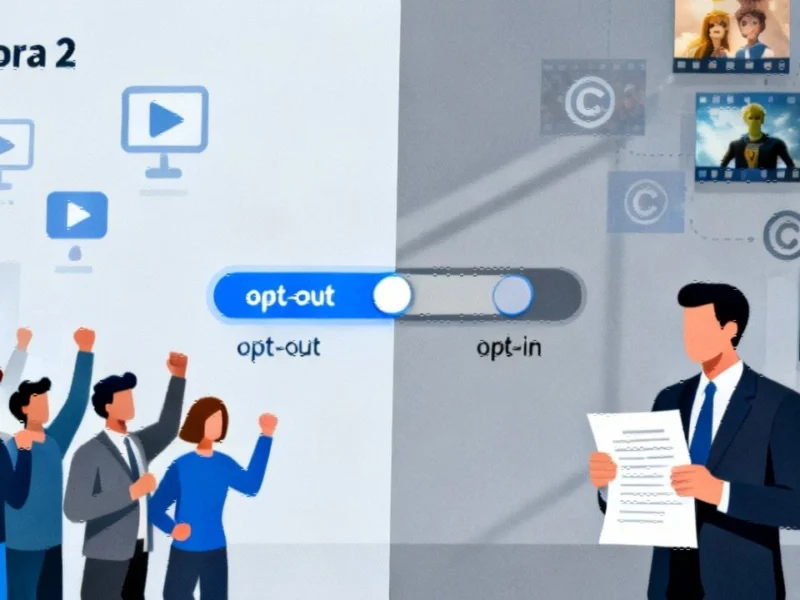Claude Code Goes Multi-Platform
Anthropic has significantly expanded the reach of its AI coding assistant with the launch of Claude Code on web and iOS platforms. Available as a research preview to Pro and Max plan subscribers, this move represents a strategic expansion beyond the command-line interface that developers have been using since the tool’s initial release earlier this year.
The timing of this expansion comes amid growing competition in the AI coding assistant space, where industry developments continue to accelerate at a remarkable pace. Anthropic’s decision to bring Claude Code to web and mobile platforms demonstrates the company’s commitment to meeting developers where they work, whether at their desks or on the go.
Web Interface Revolutionizes Coding Workflow
The web version of Claude Code introduces several groundbreaking features that could fundamentally change how developers interact with AI assistants. According to Anthropic’s announcement, the platform now enables developers to “run multiple tasks in parallel across different repositories from a single interface,” eliminating the need to constantly switch between terminal windows and development environments.
This parallel processing capability represents a significant advancement over traditional coding workflows. Developers can connect their GitHub repositories directly to the web interface, describe their requirements in natural language, and watch as Claude handles the implementation. Each coding session operates in an isolated environment with real-time progress tracking, allowing developers to actively steer Claude’s approach as it works through tasks.
Security and Sandbox Architecture
Anthropic has placed considerable emphasis on the security aspects of its web-based coding environment. The company employs a sophisticated sandbox structure that isolates each coding session, ensuring that sensitive repository data remains protected. This approach to security reflects broader market trends in enterprise AI adoption, where data protection remains a paramount concern.
The technical documentation provided by Anthropic details how the sandbox environment prevents unauthorized access while maintaining the functionality developers need. This security-first approach is particularly important given the sensitive nature of code repositories and the potential impact of security breaches in development environments.
Mobile Development Enters New Era
The iOS version of Claude Code, while currently in early research preview, promises to bring unprecedented flexibility to developers’ workflows. The mobile app enables developers to review code, execute small tasks, and monitor ongoing coding sessions from their iPhones or iPads. This mobility represents a significant step forward in how developers can interact with AI coding assistants.
Anthropic has explicitly stated that they intend to “quickly refine the mobile experience based on developer feedback,” suggesting that the iOS version will evolve rapidly as more users provide input. This user-driven development approach aligns with recent technology deployment strategies that prioritize real-world usage patterns over theoretical design principles.
Competitive Landscape and Industry Impact
The expansion of Claude Code comes at a time when the AI coding assistant market is experiencing rapid evolution. As noted in the comprehensive coverage of Anthropic’s platform expansion, the company faces stiff competition from established players and newcomers alike.
What sets Claude Code apart, according to many developers, is its nuanced understanding of coding context and its ability to handle complex, multi-step programming tasks. This capability becomes even more valuable when considering the broader context of advanced AI models that are pushing the boundaries of what artificial intelligence can accomplish in specialized domains.
Practical Applications and Use Cases
Anthropic positions the web-based Claude Code as particularly well-suited for well-defined tasks such as bug fixes and routine updates. However, early testing suggests the platform can handle more complex assignments including backend changes and repository analysis. This versatility makes it valuable for developers working across different aspects of the software development lifecycle.
The ability to answer questions about repository organization addresses a common pain point for developers joining new projects or returning to legacy codebases. This functionality demonstrates how transparency in AI systems can translate into practical benefits for development teams.
Future Implications for Development Teams
The multi-platform availability of Claude Code suggests a future where AI coding assistants become ubiquitous tools in every developer’s arsenal. The parallel processing capabilities could fundamentally change how development teams allocate resources and manage multiple projects simultaneously.
This expansion occurs alongside other significant AI-driven transformations across the technology landscape. As development tools become more intelligent and accessible, we’re likely to see corresponding changes in how software engineering teams are structured and how projects are managed.
The ethical dimensions of these advancements cannot be overlooked, particularly as organizations like the Vatican call for responsible AI governance. Meanwhile, debates about infrastructure architecture continue to shape how development tools are deployed at scale.
Financial considerations also play a role in tool adoption, as evidenced by discussions around investment strategies in the technology sector. The success of tools like Claude Code will depend not only on their technical capabilities but also on their economic viability for development organizations of all sizes.
Looking Ahead
As Claude Code moves through its research preview phase, the development community will be watching closely to see how the web and mobile implementations mature. The success of these platforms could signal a broader shift toward cloud-based, multi-platform development tools that leverage artificial intelligence to augment human capabilities rather than replace them.
The expansion represents more than just another feature release—it potentially marks the beginning of a new era in how developers interact with code, regardless of their physical location or the device they’re using. As the research preview progresses, the feedback from early adopters will likely shape not only Claude Code’s future but potentially the entire category of AI-powered development tools.
This article aggregates information from publicly available sources. All trademarks and copyrights belong to their respective owners.
Note: Featured image is for illustrative purposes only and does not represent any specific product, service, or entity mentioned in this article.



